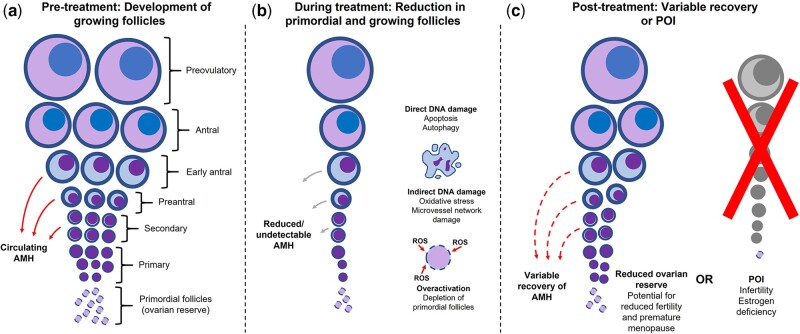Figure 1.
Putative mechanisms of impact of cancer treatment on ovarian function. (a) In premenopausal individuals, circulating AMH is produced by secondary, preantral and early antral growing follicles, and has been shown in animal models to be one of several molecules which contribute to maintenance of ovarian reserve by inhibiting folliculogenesis; (b) anticancer treatment can reduce the ovarian pool of primordial follicles either by direct or indirect DNA damage, or by overactivation and subsequent depletion of primordial follicles; (c) following treatment, a patient may experience some recovery of the number of AMH-producing growing follicles, depending on the impact of anticancer treatment, or POI. In patients who recover ovarian function, a reduced pool of primordial follicles may still lead to an increased risk of later POI and infertility. AMH, anti-Müllerian hormone; POI, premature ovarian insufficiency; ROS, reactive oxygen species

